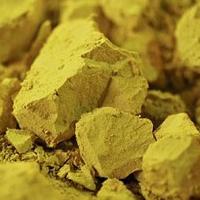
Australia’s federal environment minister Tony Burke gave the go ahead to Toro’s $270 million uranium mining project in the Wiluna region of Western Australia.
This decision has angered many people across the state especially the local aboriginal community – the Wiluna and Tarpla people.
Wiluna elder, Glen Cooke, said “Uranium should stay in the ground. It can hurt our Country, the environment, our people, our children, our children’s children”.
Toro Energy has plans afoot for two open-cut mines at Centipede and Lake Way producing at least 780 tonnes of uranium oxide a year for at least 14 years. Uranium can provide the raw material for nuclear reactors as well as for nuclear weapons. Every month three trucks will carry concentrated powered ore 2,700 km to the port of Adelaide.
Uranium mining has been responsible for the largest collective exposure of workers to radiation. One estimate puts the number of workers who have died of lung cancer and silicosis due to mining at 20,000. Low level radiation is also implicated in birth defects, high infant mortality and chronic lung, eye, skin and reproductive illnesses.
There are two main problems with the uranium mining and the nuclear Industry. Firstly there is the danger of monumental disasters. Secondly there is the unresolved issue of how to safely store nuclear waste.
In less than 60 years of nuclear power generation there have been four major nuclear incidents – Windscale (now Sellafield in the UK), Three Mile Island in the US, Chernobyl in the former Soviet Union, and Fukushima in Japan. These have been caused by a combination of human error and technical failure. There is no reason to think others can not happen again in the future.
Twenty-seven years after the Chernobyl disaster the local community is still suffering with health problems. Children are required to have health checks twice a year and scientists are predicting thousands of new cases of post-Chernobyl cancer in the next 5 years.
Far from digging up dangerous minerals like uranium we need to be looking at developing energy supplies that are both clean and safe. It is now technically possible for renewables to play a central role in energy production.
Investment in renewable energy would help to reduce greenhouse gas emissions and create thousands of skilled jobs. It is estimated that a solar industry in Australia could create 31,000 jobs by 2020. Compare this to the measly 170 jobs in operation and 350 jobs during the construction phase that Toro claim they will create.
The truth is that approval for this project has nothing to do with jobs or benefits for local communities. The ALP have ticked off this project so that their rich mates in the mining sector can profit at the expense of workers, the environment and community safety.
We must note that approval for this project does not mean that the deal is done and dusted. Activists should take inspiration from the recent campaign at James Price Point which saw Woodside forced to shelve its plans for a gas hub there. In that case an organised community campaign pushed the big business interests back.
A campaign to stop Toro would be a wonderful opportunity for the environmental movement, Indigenous communities and trade unions to work together to fight for an alternative to the dangerous uranium industry.
Side by side with fighting to end uranium mining we need to fight for a system that democratically plans energy production and distribution. This could be done on the basis bringing the mining, oil, gas and transport industries into public ownership under the democratic control of workers and the community.
Only in that way could our needs be met while protecting the planet and providing jobs, homes and services to all.

Be the first to comment